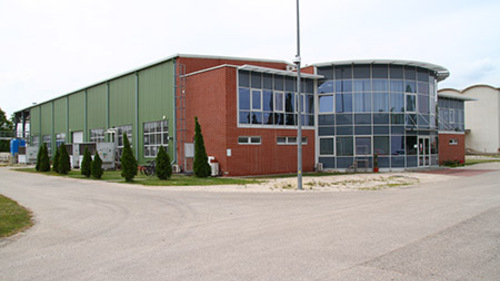
The new Rossi Biofuel plant in Komárom, Hungary, has been inaugurated, increasing the volume of biofuels produced in the country. The plant, which has a capacity of 50,000 tonnes per year, uses RepCat technology from BDI-BioEnergy International to process various types of fatty waste into biodiesel. The technology can achieve greenhouse gas savings of over 85%. The plant aims to comply with EU rules on renewable transport fuels and the biodiesel produced will be used as a bio-component in the production of gas oil at MOL's refineries. The project received support from the Hungarian government.
Komárom - The new Rossi Biofuel plant in Komárom was inaugurated in a ceremony that will significantly increase the volume of biofuels produced in Hungary. With this investment, the MOL Group and Envien Group have brought to Europe a technology that can achieve greenhouse gas savings of more than 85 percent.
The advanced biodiesel plant of Rossi Biofuel Zrt. was inaugurated, which will significantly increase the company's annual production and the volume of biofuels produced in Hungary with a capacity of 50,000 tonnes per year. The plant will be the first in Europe to use the RepCat technology of the Austrian company BDI-BioEnergy International GmbH, which is extremely flexible in terms of raw materials: it can process fatty waste of different types and origins, such as used cooking oils, (oil and) grease trap materials, animal fats or residues from vegetable oil production. The biodiesel produced is one of the most environmentally friendly fuels.
"We have brought to Europe a unique technology that can produce biofuel from almost any kind of fat. This is a huge success for all of us, as the MOL Group's updated strategy has the circular economy as one of its pillars. We have made a commitment to recycle as much waste as possible efficiently and to provide increasingly sustainable solutions to meet the world's growing energy needs. The energy transition is a long and complex process, but this investment is a good example of how, with the right technology, using waste, we can make conventional fuels more environmentally friendly," said Oszkár Világi, Deputy CEO of MOL.
With the construction of the plant, the MOL Group and the Envien Group, the 25-75% owners of the company, aim to respond to both consumer and regulatory requirements: the goal is for Rossi Biofuel to comply with EU rules on renewable transport fuels. The Rossi Biofuel product is used as a bio-component in the production of gas oil at MOL's refineries in 100 Halombatta and Bratislava.
"This new modern plant is the Envien Group's first major investment in advanced biofuels production, where waste is processed into useful products. We believe that a plant that uses waste and mainly domestic raw materials, contributes to greenhouse gas savings from transport and at the same time stimulates and stimulates the local economy and local employment is the way forward and a priority for the Group. Thanks in part to the support from the Hungarian government, we have decided to locate the plant at our production base in Komárom, Hungary, and we are confident that this will not be the last project of its kind," said Ing. Robert Spišák, PhD, Chairman of the Board of Directors of Rossi Biofuel Zrt.
The foundation works for the €45 million brownfield plant started in June 2020. More than 15 companies were involved in the construction works, with an average of 80 employees, but at times it reached 150-170 employees. The state supported the investment with interest subsidies and corporate tax credits, which doubled the number of employees at Rossi Biofuel to over 100.
The new plant was inaugurated by Dr. László Palkovics, Minister of Innovation and Technology, Dr. Judit Bertalan Czunyin, Member of Parliament, Ing. Robert Spišák, PhD., Chairman of the Board of Directors of Rossi Biofuel Zrt. and Dr. Oszkár Világi, Deputy CEO of the MOL Group.